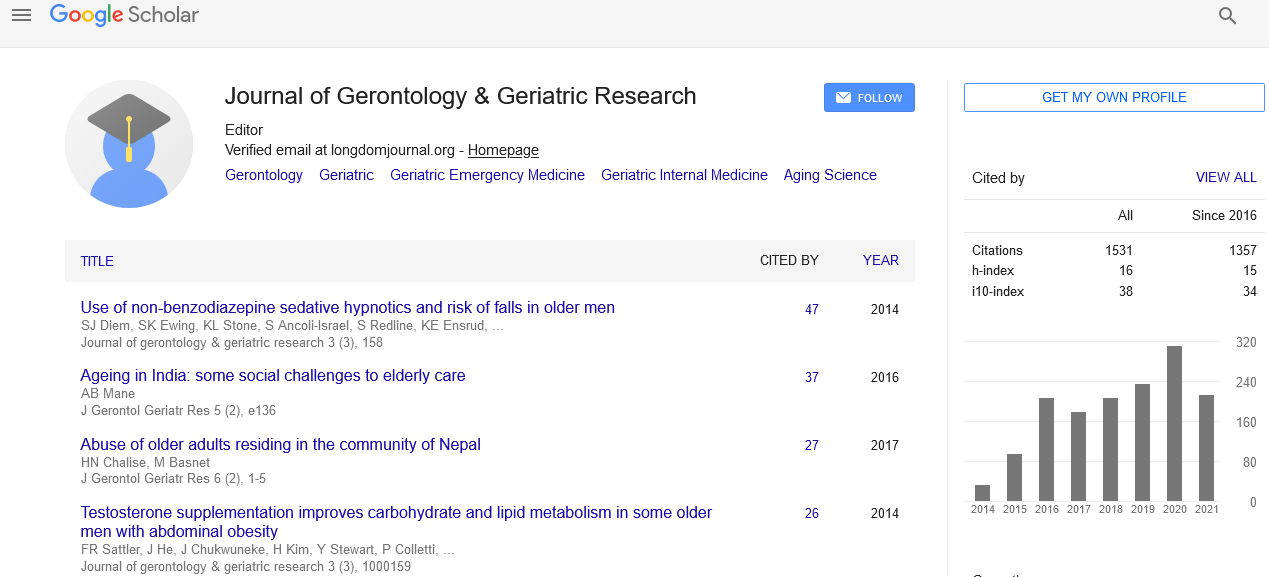PMC/PubMed Indexed Articles
Indexed In
- Open J Gate
- Genamics JournalSeek
- SafetyLit
- RefSeek
- Hamdard University
- EBSCO A-Z
- OCLC- WorldCat
- Publons
- Geneva Foundation for Medical Education and Research
- Euro Pub
- Google Scholar
Useful Links
Share This Page
Journal Flyer

Open Access Journals
- Agri and Aquaculture
- Biochemistry
- Bioinformatics & Systems Biology
- Business & Management
- Chemistry
- Clinical Sciences
- Engineering
- Food & Nutrition
- General Science
- Genetics & Molecular Biology
- Immunology & Microbiology
- Medical Sciences
- Neuroscience & Psychology
- Nursing & Health Care
- Pharmaceutical Sciences
Abstract
Towards a Geriatrics Policy Integrated to the Primary Health Cares in Africa (The Case of Senegal)
Ka O, Leye MMM, Awa Gaye, Sow PG, Tal Dia A, Diop SN and Sow AM
Due to the growth rate of the elderly (3.5%) that exceeds the national average of 2.7%, the country of Senegal will not escape from the aging process of its population. For now, gérontological issues do not stand in terms of demographic weight, but instead in terms of social destructuration, destruction of community solidarity networks and finally in terms of poverty. Despite the implementation of the “Sésame Plan” a policy of free access to the geriatrics medical care, elder people still meet issues concerning the support of their chronic affections. In addition, there is not enough specialists in geriatrics and care providers are not trained in that field. With regard to all of the above, it is important to propose gérontological and-geriatric solutions adapted to our socioeconomic and cultural context even if we still need developed countries’ experience in our réflexion. The alternative is to integrate the medical particularity and specificity of the elders in to the global care system within the framework of Primary Health Cares. Recommendations for an efficient gérontological organization in our country must be based upon the knowledge of the following data: the current and future demography of elder people; the geriatrics pathology as it currently stands and its future development; the socioeconomic and cultural data: the country health system (health huts, posts, centers, regional and national hospital, university hospital center).


